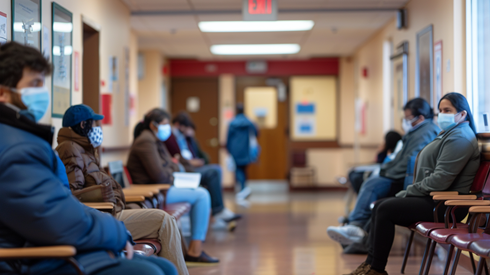Climate Change Emerges as Top Concern in 2022 Future Risks Report

October 26, 2022

For the first time, climate change stands as the top risk cited by experts surveyed for an annual report about the risks they see as most troubling for the future.
Climate change is the top risk among experts surveyed in all regions of the world in this year's AXA Future Risks Report 2022. Climate change is also the primary concern among the general public in the United States, AXA reports.
Cyber-security risks were experts' top-ranked risk in AXA's 2021 report.
AXA's global survey measures and ranks the evolution of perceptions of emerging risks, based on responses from a panel of 4,500 risk experts from 58 countries and a representative sample of 20,000 people from 15 countries. This report, released October 24, 2022, is produced in partnership with the IPSOS research institute and the geopolitical analysis consultancy Eurasia Group.
Geopolitical risks rank second in this year's report, moving past cyber and pandemic risks. Of the experts surveyed, 95 percent indicated they expect geopolitical tensions to persist and spread around the world. AXA suggests there was a relation between the concern over geopolitical risks and energy-related risks moving up to fourth place in this year's survey, from 17 last year.
The full ranking of experts' top 10 risks in this year's survey, in order, is climate change, geopolitical instability, cyber-security risks, energy risks, pandemics and infectious diseases, social tensions and movements, natural resources and biodiversity risks, financial stability risks, macroeconomic risks, and monetary and fiscal policy risks.
Among members of the general public surveyed, the top 10 risks are, in order, climate change, pandemics and infectious disease, geopolitical instability, cyber-security risks, energy risks, new security threats and terrorism, social tensions and movements, pollution, natural resources and biodiversity risks, and financial stability risks.
In the Americas, experts ranked cyber-security risks second and geopolitical instability third. Experts in Europe flipped that order, with geopolitical instability ranked second and cyber risks third. While experts in Africa ranked cyber-security risks second, they ranked pandemics and infectious diseases third, while experts in Asia ranked pandemics and infectious diseases second and cyber-security risks third.
This is the fifth consecutive year that experts ranked cyber risks among their top three threats, AXA says.
AXA notes that economic risks are increasing, fueling social tensions. This year's survey is the first in which experts ranked three economic risks among their top 10, showing their concerns about the possibility of financial instability, macroeconomic deterioration, and monetary and fiscal stress. Inflation is a growing concern for both experts and the general public, AXA says.
The high ranking of several economic risks also underscores the need for increased financial literacy, the report suggests, as experts believe members of the general public are less aware of economic risks than those members of the public believe themselves to be. While 55 percent of general public respondents said they think the public is very aware of macroeconomic risks, only 30 percent of experts surveyed agreed.
The report notes threats related to climate change, health, and geopolitical tensions have all clearly manifested themselves. But one major threat that has yet to materialize—but may do so in the near future—is a large-scale cyber attack that cripples essential infrastructure such as health services, energy storage, or payment systems.
Cyber risks are compounded by geopolitical tensions and the increased digitization of our everyday lives, the AXA report says, and remain in a high spot in the risk ranking at number 3.
"While pandemic-related risks drop to fifth, the survey overall points to both cyber and wider health risks—such as mental health and changing patterns of infectious diseases—becoming entrenched as a 'new normal' in the overall risk landscape," the report says.
This is the ninth consecutive year for the AXA report.
"The 2022 edition shows a fragmented, overheated world in which crises are increasingly occurring all at the same time, rather than one succeeding another," Thomas Buberl, CEO of AXA, wrote in a foreword to the report. "In addition to the major risks already discussed in previous years—such as pandemics, cyber risk, and climate change—this year we are seeing more threats linked to geopolitics, energy, and economic and social instability."
As a result of those challenges, the report found a sense of vulnerability remaining high among the general public, with 80 percent of respondents saying they considered themselves more vulnerable than 5 years ago. Declining confidence among members of the general public in decision makers' ability to find solutions to the risks suggests a sense that the level of preparation for addressing risks like climate change, cyber threats, or geopolitical tensions is insufficient, AXA says.
"With all these challenges looming, the need for coordination between policymakers and private-sector actors is critically important," Ian Bremmer, president of the Eurasia Group and GZERO Media, wrote in his own foreword to the report. "Insurers can play a critical role in fostering cooperation by providing innovative risk management tools and helping businesses to soberly assess future risks. The global landscape is a troubling one, and now more than ever, collective solutions are critical to navigating our way forward."
Asked what the insurance industry could do about future risks, experts' top responses are supporting innovative solutions, contributing to prevention and resilience, sharing expertise in risk management, and participating in building a common risk culture, the report says.
This year's survey also saw experts' citing greater public/private collaboration as a preferred approach to finding solutions to a number of the risks that concerned them.
October 26, 2022





